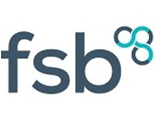Social Media – The Impact
With the booming rise of technology, and most importantly the use of social media swiftly integrating itself into our daily lives, just how important is social media and just how does it affect us as employers and employees within the job world.
Even for a business, social media holds its own importance. With the constant use of the internet and web searching, it has become much easier for customers to locate and review a business for others to see. It has essentially become the new ‘word-of-mouth’ in a sense, but on a much more global scale.
For a job seeker? Social media is a great way of displaying yourself and your skills to a potential employer, as well as letting them get a glimpse of your personality. On the other hand, it can negatively affect how your employer perceives you and the image you are sending across.
Here are some of the top ways that social media can impact you:
Click here to go straight to the business impacts
As a Job Seeker or Employee
Job Search
When you think about social media in regards to job seeking, you instantly think of LinkedIn. The most business orientated social media platform. But that isn’t the only place that job adverts are being advertised on. It is now becoming more common for them to be advertised on a company’s Facebook page, or even their Twitter and Instagram. Some businesses may not have the resources to use larger recruitment websites.
- Facebook: Like/follow company fan pages that you’re interested in working for. Join Facebook groups related to the career field. Interact with companies on Facebook, ask them questions and build a relationship before enquiring about job opportunities.
- Twitter: Use #hashtags and look at online trends, especially in your area. Use the advanced search feature on twitter to find local tweets or search popular hashtags such as #jobs #careers #jobopenings. Update your biography with hashtags such as #freelance or #jobseeking to let employers know you’re available. You can follow companies you’re interested in working for, tweet and interact with them. Twitter has a great feature that allows you to organise who you follow into lists so that job searching can be separated from your personal twitter feed.
You can use social media to look for jobs that may not yet exist by keeping track of a company you’re interested in – have they recently announced an expansion? Did they recently have a leaving party? Use these opportunities to your advantage.
Online Profile
LinkedIn is a perfect way of displaying an online CV to potential employers. You can provide a detailed, descriptive list of your skills, past work experiences, any voluntary experiences and qualifications you may have attained. Adding a professional photo of yourself will help an employer put a face behind the CV.
For those jumping fresh into the job world it can be a daunting experience, especially on LinkedIn, due to the little work experience and few work contacts to network with.
Facebook is a great way to let friends and family know you’re job searching – use those connections you already have! Post about any voluntary projects you’ve worked on. Showcase your skills, edit your description on your profile with jobs you’re seeking or skills/traits you have.
Blogs are fantastic for showcasing your writing skills, showing your passion and enthusiasm about your interests as well as how much knowledge you have within the field.
You can use your social media profiles to highlight a friends work or interesting articles, it shows employers that you’re open minded to other fields, not just your own.
How much is too much?
It’s becoming more common for employers to look at your social media when deciding whether or not to hire you. It allows them to get a feel for the kind of person and if you would fit their company. It isn’t just LinkedIn that gets viewed, it’s Facebook, Twitter, even Instagram. It gives a peak into your skills and personality and could help you land a job, or lose a job.
The best thing to do is to maintain a professional approach on your social media. Whilst a private account is good for hiding, you lose visibility. Instead, consider having a personal account that’s private and a business/work professional account for social media.
As a Business
Publicity
Social media is a powerful tool. It provides a huge opportunity for businesses to attract the attention of new customers and loyal customers.
- It builds up brand image.
- It can be used strategically to increase brand awareness, promote on-going or new offers, events or even promotions to a large audience.
- By using a variety of social media platforms, it covers a larger array of public and brings awareness to those who may have one preference to one social media website to another.
- It provides exposure and stays fresh on the mind (and on news feeds!) if the business is an active poster on social media
- It can increase traffic to the company website and improve search rankings.
The extra publicity can also be a double-edged sword as customers have more power over a business. Negative reviews and services can be posted on Facebook/Twitter/LinkedIn which can be seen by their connections and your connections.
BUT this can also be used to your advantage, as word can spread quickly on a global scale and social media is a great way to connect with your fans, which brings us to the next point.
Relations
Social media platforms act as the perfect gateway for businesses to connect and relate to their audience on a much more personal level. It can help them feel less like another number on your figures, and more like a person of importance.
It is a stage for businesses to answer queries, questions and provide customer service to their customers both publicly and privately. It can be used to show potential customers, and entice recurring customers, your company is open to listen and willing to help. It will bring personality to your brand and develop a more personable relationship.
If a customer likes, comments or interacts with your business page, it can appear on their social circles feeds. If a peer has had a good experience with a company, they are more likely to also use those services as they trust their peers’ opinion. With the heavy usage of the internet, people are increasingly moving towards social media reviews before investing time into a company and their services.
The key point to take from all this is to stay active as the internet is very dynamic and always changing!
Further reading/related articles if you’re interested:
- http://nowsthetimetoask.com/?p=47
- https://www.theguardian.com/careers/careers-blog/job-seeking-twitter-tips
- http://idealistcareers.org/7-unexpected-ways-job-seekers-can-use-social-media-in-the-job-search/
- https://www.prospects.ac.uk/careers-advice/getting-a-job/job-hunting-and-social-media
- https://www.theguardian.com/careers/social-media-job-seeking
- http://recruitmentbuzz.co.uk/the-impact-of-social-media-on-recruitment/
- http://www.hrmagazine.co.uk/article-details/getting-social-media-recruitment-right









Share
Facebook
Twitter
LinkedIn
Telegram
Tumblr
WhatsApp
VK
Mail